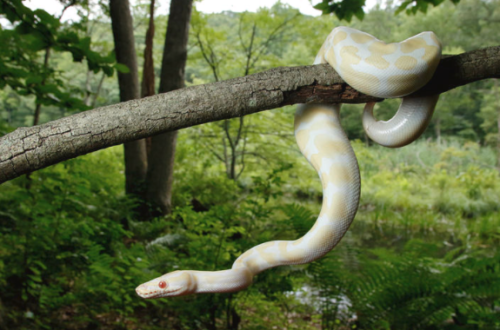-
Maintaining Humidity & Heat
Hello, my fellow reptile enthusiasts. Today I want to take a moment and discuss something that comes up quite frequently; how to maintain proper humidity levels and ambient temperatures for species with narrow requirements. I will focus on ball pythons but these methods will work well for other species with similar husbandry needs. Please visit the Ball Python Care & Feeding Guide page for more information on keeping these fantastic pet snakes. A glass tank is the most common type of enclosure in the pet industry. While these “tanks” are not the best for Ball Pythons, it is one of the more affordable and readily available housing options. You can…
-
Quarantine Quick Guide
Bringing Home Your New Snake A guide for safe reptile acquisitions. The following information is intended as a basic guide for quarantine procedures to ensure the safety and health of the new animal and the rest of your reptiles. Please consult an exotic vet that specializes in reptiles if you are experiencing any difficulties with your animal(s). Bringing a new pet into our homes or a new snake into our collection is always an exciting time. To ensure the safety and health of the new animal as well as the rest of the animals in your home, new animals should be quarantined for at least 30 days, up to 180…
-
Why Is My Snake Not Eating?
This time of year, and any time of year, you see posts all over social media asking about why their precious noodles are refusing to eat, especially ball pythons. There are a few reasons that can cause a snake to go off feed or refuse to eat from the start, most are easily addressed. SHEDDING The most common reason a snake will refuse food is that it is in a shed cycle. If your snake’s eyes are cloudy, scales feel dry, or he has stuck shed still on him, he may refuse food. Simply wait until he has fully shed or remove any old shed, and try again. TEMPS Temperatures…
-
Genetics Primer
Understanding the Basics of Snake Breeding Genetics So, you bought some cool snakes and now you’re thinking about breeding them. Awesome! First, you need to understand some basics on how genes work and how they are inherited to make sure the snakes you want to breed together will give you the results you’re looking for. Snake colors and patterns known as “morphs” are due to specific genes on an animal’s DNA. A snake can have just one gene or it can have many genes affecting its color and pattern. We like to give combinations of genes fun names like Bubble Gum, 8 Ball, or 007, but they’re simply a nickname…
-
Ball Pythons: Terrestrial or Semi-Arboreal?
A hot debate in the ball python discussion groups as of late is housing, of course, and why they need height because they’re semi-arboreal. Wait… What? Since when? First, let’s discuss these terms. Arboreal means an animal that lives above ground for the majority of its life. This means they eat, sleep, mate, and sometimes even lay eggs above ground. Semi-Arboreal means that animal spends at least 50% of their lives above ground, often sleeping and eating in trees. Terrestrial means the animal spends the majority of their lives at ground level. This is a typical tree snake, a Green Tree Python. They spend the majority of their lives on…
-
Modifying a Glass Tank for a Ball Python
I decided to put this in its own post to make it easier to find and reference. These tips are great for any species of reptile that require higher humidity and heat, including boas of all kinds, baby tegus, and other species of pythons. Just keep in mind that lizards will need added UVB light. Please check out the full care and info sheet on Ball Pythons for specifics on temps, feeding, and housing. If you must keep your ball python in a glass tank, here are some tips to make your snake happier in it. Ball pythons need to feel safe and secure, have humidity levels of 55-70%, and…
-
Pythons in Immunology Research
We had a visit today by Dr. Lori Newman-Lee from the Arkansas Center for Biodiversity Collections at Arkansas State University. Dr. George Brusch was showing her and graduate student Lindsey Matin-Krikorian how to draw blood from pythons. Apparently you have to go right into their hearts… It was very cool to watch and we’re happy to help with Dr. Newman-Lee’s research on unique immune cells in snakes.
-
Pet Rats, Making the Cut
DISCLAIMER: KP Exotics no longer offers pet rats to the public. This post has useful information, so we are leaving it up for educational purposes. Let’s talk about temperament testing. Not all rats will make good pets even if both parents were the sweetest booboos ever. As a breeder, that means temperament testing is very important to make sure people who adopt from you are getting quality pets that will stay with them in a good home for life. Picking the best pet prospects takes more than one interaction. Here’s what we do at KP Exotics. First, we do not handle rats very much when they’re young. Handling too often…
-
Benefits of Feeding Frozen Rodents and Feeding Tips
Feeding rodent-eating reptiles can be tricky and not always a pleasant experience for soft-hearted owners. Those little mice and rats are stinking cute! Or, you could have the opposite feelings and find them disgusting vermin. Either way, you’re not really happy with the task of buying, handling, and feeding a live rodent to your scaly pet. You might have tried frozen snek snacks from a pet store, but your snake decided thawed rat was not appealing. Let’s discuss why frozen is a good choice and how to help your picky friend make the switch. Why is frozen a better choice? Feeding live prey items comes with some risk and difficulties.…
-
FEEDING & HOUSING YOUR BALL PYTHON
We have gotten several snakes in as rescues that wouldn’t eat due to poor husbandry advice. Some of our clients and friends have reported bad advice from pet stores when buying feeders. Most experienced reptile keepers know you shouldn’t listen to pet store workers’ advice when it comes to, well, anything. Even the smaller stores are known to give poor advice. So, we made this post for anyone who keeps or is interested in keeping ball pythons, one of the most common pet snakes in Arkansas. FEEDING First and foremost, your young BP should be started on rats ASAP. Many breeders will start their hatchlings on rat fuzzies from the…




